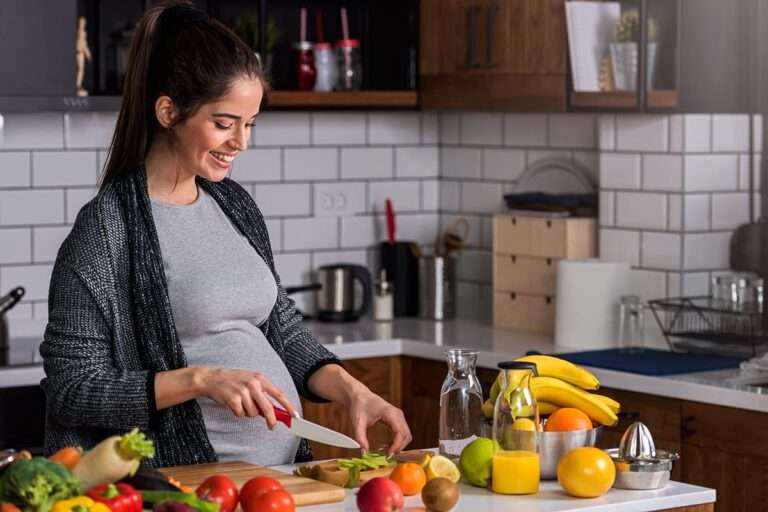
A good diet is essential to living a healthy lifestyle at any time, but it’s much more crucial if you’re expecting or planning a pregnancy.
Eating healthily during pregnancy will help your baby to develop and grow. While you don’t need to follow a specific diet, it’s still vital to eat a variety of meals every day to ensure that you and your kid are getting the proper amount of nutrients.
The best way to ensure that you get all the vitamins and minerals you need is to consume whole meals, but when you’re pregnant, you also need to take a folic acid supplement.
— Veggies and fruit during pregnancy
Consume plenty of fruit and vegetables since they are rich in vitamins, minerals, and fiber, which promotes healthy digestion and can help prevent constipation.
Every day, consume at least 5 portions of fruit and vegetables in a variety of forms, such as fresh, frozen, canned, dry, or juiced. Always wash fresh fruit and vegetables before consuming.
— Protein in pregnancy
Consume some foods high in protein every day. Several sources of protein are:
nuts
beans
pulses
fish
eggs
meat (but avoid liver)
— Dairy Products in pregnancy
Because they include calcium and other essential nutrients for both you and your baby, dairy products like milk, cheese, and yogurt are crucial during pregnancy.
When possible, choose low-fat options such as semi-skimmed, 1 percent fat, or skimmed milk, low-fat and reduced-sugar yogurt, and low-fat hard cheese.
Choose unsweetened, calcium-fortified soy drinks and yogurt if you prefer dairy alternatives to those products.
— Foods with high fat, sugar, or both content
Sugary meals and beverages frequently contain a lot of calories, which can lead to weight gain. Additionally, eating and drinking sweet things might cause tooth decay.
— Fats in pregnancy
Fats are valuable sources of energy for your body and promote your baby’s growth. Choose healthy, unsaturated fats like cold-pressed vegetable oils. Ghee is also good.
— Breakfast
In India, a number of original, nutritional breakfast options are available. Start your first solid meal with veggie-rich sevai, upma or poha, oatmeal,
multigrain toast with egg, parathas, or chillas stuffed with veggies
— Lunch
When it comes to lunch, go with what you’re used to eating, but remember to balance your meal with various food groups.
A roti- or rice-based meal can give you a healthy stuffing of carbs, while dal, fish or chicken can give you protein.
— Dinner
Make dinner a lighter version of lunch, with identical food groups and meal options.
Like lunch, have carbs in the form of rice, roti or paratha, and include dal or meat to add some protein. Must add salad and curd (or buttermilk).
— Healthy snacks in pregnancy
Sprouts Bhel
Fruit Chaat
Homemade Masala Papad
Sweet Potato Chips
Whole Wheat Sandwich
Bajra Khakhras
Smoothies
The mix of Peanuts, Murmura (Puffed Rice)
Vegetable Suji Idli
Masala Sweet Corn